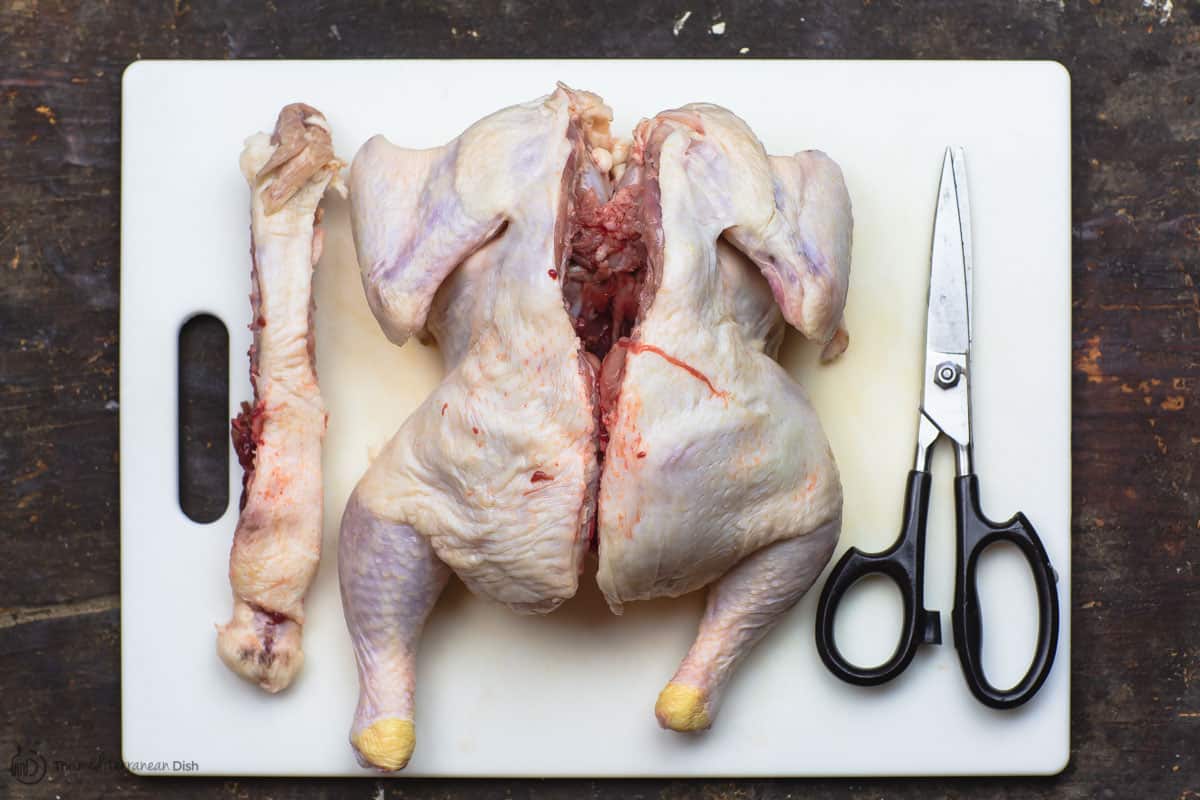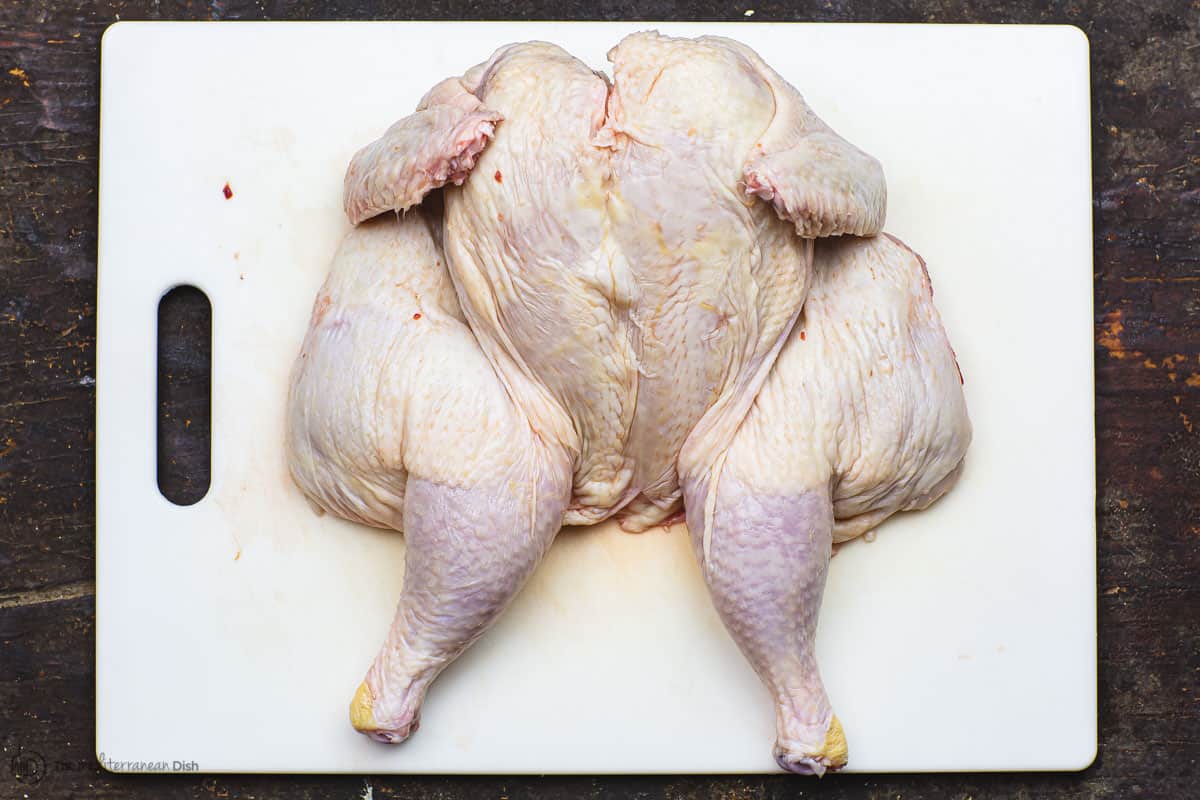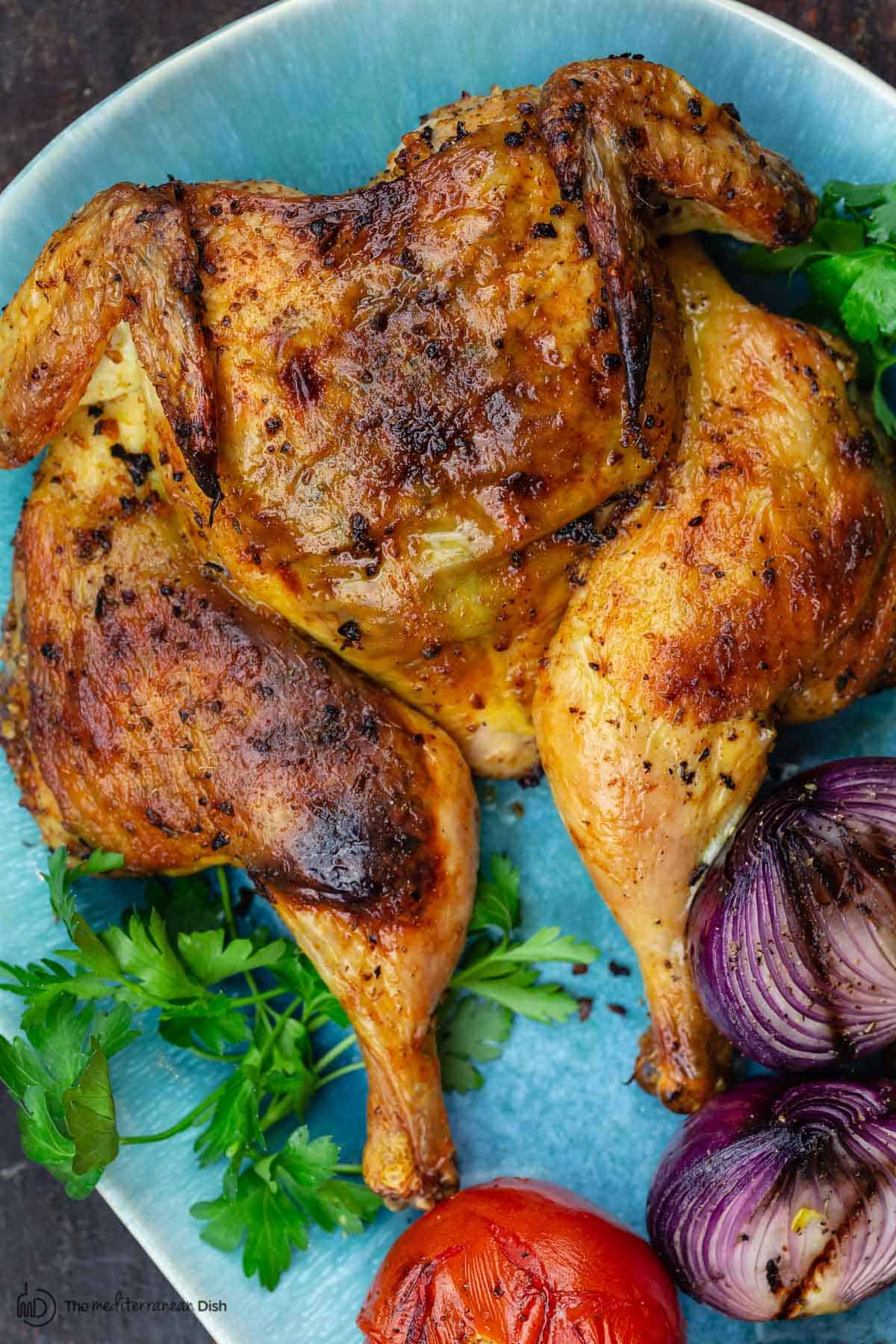Have you ever tried to grill a whole chicken only to end up with a bird that’s charred on the outside but still pink near the bone? Or maybe you’ve played it safe and ended up with dry, overcooked chicken that nobody wants to eat? Trust me, I’ve been there too. After years of trial and error (and some embarrassing family barbecues), I’ve finally cracked the code on what temperature should a whole chicken be grilled at for juicy, perfectly cooked results every time.
The Perfect Grilling Temperature for Whole Chicken
Let’s cut to the chase – you should grill a whole chicken at a temperature of 375-400°F (190-205°C). This temperature range provides the sweet spot that allows your chicken to cook thoroughly without drying out.
But here’s the thing – simply knowing the temperature isn’t enough. The method of applying that heat makes all the difference between mediocre and magnificent results.
Why Temperature Matters So Much
When grilling a whole chicken, temperature control isn’t just important—it’s everything! Here’s why:
- Food Safety: Undercooked chicken can harbor harmful bacteria. The USDA recommends chicken reach an internal temperature of 165°F (75°C) to eliminate any potential pathogens.
- Juiciness: Cooking at too high a temperature can quickly dry out your bird, especially the breast meat.
- Even Cooking: A whole chicken has different thicknesses throughout, making consistent cooking challenging.
- Crispy Skin: We all want that perfect golden-brown, crispy skin, which requires proper heat management.
The Secret Weapon: Indirect Heat
Here’s where many backyard grillers go wrong – they place the chicken directly over the flames. This is a recipe for disaster!
Instead, you want to use indirect heat for grilling a whole chicken. This means:
- Preheat your grill to 375-400°F (190-205°C)
- Turn off the burner(s) directly below where you’ll place the chicken
- Keep the surrounding burners on to maintain the temperature
This creates an environment similar to an oven, allowing the chicken to cook evenly without burning. Your chicken will get that beautiful grilled flavor and crispy skin without the risk of charring or drying out.
The Spatchcock Advantage
If you’re serious about grilling a whole chicken perfectly, consider spatchcocking (butterflying) your bird first. I was intimidated by this technique at first, but it’s actually pretty simple!
Spatchcocking involves removing the backbone and flattening the chicken, which provides several major benefits:
- Even Cooking: The flattened chicken cooks more uniformly
- Faster Cooking: Reduces cooking time by up to 30%
- Better Flavor Absorption: More surface area for marinades and seasonings
- Crispier Skin: More skin is exposed to the heat
To spatchcock a chicken:
- Place the chicken breast-side down
- Use kitchen shears to cut along both sides of the backbone to remove it
- Flip the chicken over and press down firmly on the breastbone to flatten
Many grocery stores will do this for you if you ask, or you can have your butcher handle it.
How Long Should You Grill a Whole Chicken?
At 375-400°F (190-205°C) using indirect heat, expect to grill a whole chicken for:
- Regular whole chicken: Approximately 1 to 1.5 hours
- Spatchcocked chicken: About 45 minutes to 1 hour
But here’s the crucial part – cooking time is just an estimate. The only foolproof way to know when your chicken is perfectly done is to use a meat thermometer. Insert it into the thickest part of the thigh (without touching bone) and look for that magic number of 165°F (75°C).
My Foolproof Grilling Method
After many trials (and some burnt offerings to the grill gods), here’s the method that works for me every time:
-
Prep the chicken: Season generously with salt and your favorite spices, or use a marinade. Don’t forget to season under the skin too!
-
Preheat the grill: Get your grill to a steady 375-400°F (190-205°C).
-
Set up for indirect heat: Turn off the burners directly under where the chicken will sit.
-
Place the chicken: Position it breast-side up on the grill over the unlit burners.
-
Monitor temperature: Keep the grill’s temperature steady around 375-400°F.
-
Check periodically: Every 15-20 minutes, check on your chicken and rotate it 90 degrees if one side is browning faster than others.
-
Test for doneness: Use a meat thermometer to check that the internal temperature reaches 165°F (75°C) in the thickest parts.
-
Rest before serving: Let the chicken rest for 10 minutes before carving to allow juices to redistribute.
Common Temperature Mistakes to Avoid
Even experienced grillers make these errors:
Mistake #1: Starting with a cold grill
Always preheat your grill properly. A cold grill leads to longer cooking times and uneven results.
Mistake #2: Cooking over direct heat only
This is the fastest way to burn the outside while leaving the inside raw. Indirect heat is your friend!
Mistake #3: Not using a meat thermometer
Don’t guess! A good digital meat thermometer takes the guesswork out of grilling.
Mistake #4: Not accounting for carryover cooking
The chicken’s internal temperature will rise about 5°F after removing it from the grill. Factor this in when taking temperature readings.
A Mediterranean-Style Whole Grilled Chicken Recipe
If you’re looking for amazing flavor, try this Mediterranean-inspired marinade that pairs perfectly with our temperature recommendations:
Ingredients:
- 1 whole chicken (3.5-4 lbs), spatchcocked
- 1/3 cup extra virgin olive oil
- Juice and zest of 2 lemons
- 1 tablespoon dried oregano
- 1 tablespoon fresh thyme
- 1 teaspoon coriander
- 1 teaspoon paprika
- 1/2 teaspoon cumin
- 1/2 teaspoon black pepper
- 1/2 teaspoon cayenne pepper (or to taste)
- 12 garlic cloves, minced
Instructions:
- Mix all marinade ingredients in a bowl.
- Season chicken with kosher salt, including under the skin.
- Apply marinade generously, especially under the skin.
- Refrigerate for 2-4 hours.
- Preheat grill to 400°F and set up for indirect heat.
- Grill chicken for 45-60 minutes until internal temperature reaches 165°F.
- Rest for 10 minutes before carving.
Special Considerations for Different Grills
Your grill type affects how you’ll maintain the proper temperature:
Gas Grills
These make temperature control easiest – just set the burners to achieve 375-400°F and turn off the ones directly under the chicken.
Charcoal Grills
Create a two-zone fire with coals piled on one side. Place the chicken on the coal-free side. You may need to add more charcoal during cooking to maintain temperature.
Pellet Grills
Set the temperature to 375-400°F. These grills already use indirect heat, so just place the chicken in the center of the grill.
Troubleshooting Tips
Problem: Chicken skin isn’t crispy
Solution: Make sure the chicken is completely dry before grilling. Consider briefly placing over direct heat at the end to crisp up the skin.
Problem: Chicken is done on the outside but raw near the bone
Solution: Your grill temperature is likely too high. Reduce heat and continue cooking using indirect heat.
Problem: Cooking is taking much longer than expected
Solution: Your grill may not be maintaining temperature. Check for proper ventilation and adjust fuel as needed.
The Bottom Line
Grilling a whole chicken at 375-400°F (190-205°C) using indirect heat is the key to juicy, perfectly cooked results. Always use a meat thermometer to verify the internal temperature reaches 165°F (75°C), and don’t forget to let your masterpiece rest before serving.
With these temperature guidelines and techniques, you’ll be the backyard grilling hero at your next cookout. Trust me, once you nail the perfect grilled whole chicken, your friends and family won’t stop asking for it!
What’s your favorite seasoning for grilled chicken? I’d love to hear your successes and challenges in the comments below!

Three steps to the best grilled whole chicken
- Spatchcock
- Marinate
- Grill over indirect heat
Often times, cooking a whole chicken on the grill produces results that are less than exciting–overcooked and dry in some parts, or under-cooked in others.
The answer? Spatchcock!
We’ve talked about spatchcock chicken in detail before. It means to basically split or butterfly a chicken so that it is flattened. First, you’ll remove the backbone, then break breastbone by pressing down on the wings to flatten the bird.

Spatchcock or butterflied chicken is ideal for grilling. By being able to lay the chicken flat on the grill, it easily chars and absorbs smoke’s flavor, and the skin will crisp up while the chicken remains nice and juicy on the inside.

Some supermarkets actually sell whole chicken already butterflied, and you can also ask your butcher to do it for you.
Now, let’s talk flavor! It’s all in the magical Mediterranean-style marinade.
For grilling a whole chicken, rather than a yogurt chicken marinade, I go for a garlic and citrus marinade with quality extra virgin olive oil and a combination of warm spices and bold herbs like oregano and thyme.
The olive oil in the marinade plays a big role in imparting color and helping the chicken skin crisp up.
Here’s what’s in the marinade (exact measurements in the print-friendly recipe below):
- Extra virgin olive oil. I used Private Reserve Greek extra virgin olive oil.
- Juice and zest of 2 lemons.
- Dry oregano
- Fresh thyme
- Coriander
- Paprika
- Cumin
- Black pepper
- Cayenne pepper
- Garlic cloves. Fresh garlic cloves are best here. I used 12 garlic cloves, peeled and minced.
Tip: For best flavor, allow the chicken to marinate in the fridge for 2 to 4 hours before grilling.

How long does it take to grill whole chicken?
We used an outdoor gas grill for this recipe. Once spatchcocked, our grilled chicken will take about 45 minutes to 1 hour over indirect heat.
While the grill is heated to 400 degrees F, the burner (or burners) directly below the chicken will be turned off, the other burners surrounding it will be on. That’s what we mean by indirect heat here (be sure to watch the video below to see exactly how Adam places the chicken on the grill).
Why indirect heat? Grilling whole chicken over indirect heat is the secret to juicy, well-cooked chicken. The indirect heat essentially roasts the chicken to perfect doneness without dealing with flare-ups, burnt chicken skin, or underdone meat.
What is the Safe Temperature to Cook Chicken to?
FAQ
What temperature do you grill a whole chicken at?
Is it better to cook a whole chicken at 350 or 400?
Key Takeaways. 400°F is the best temperature for baking chicken. The shorter it takes for a chicken to cook, the juicier it will be inside.
What’s the perfect temperature for grilled chicken?
Grill chicken to a safe internal temperature of 165°F (74°C) using a meat thermometer, checking the thickest part of the meat. Start by preheating the grill to medium-high heat (around 400-450°F), and grill boneless, skinless breasts for about 12-15 minutes, or longer for bone-in cuts like thighs or drumsticks. Remove the chicken from the grill and let it rest for 5-10 minutes to allow the temperature to rise to 165°F through carryover cooking.
How long do I cook chicken on the grill at 350 degrees?
• Low Heat (250° to 350°F):
After about 9 minutes on the grill, insert the digital meat thermometer into the thickest part of the chicken to check the internal temperature. Grill until the chicken breasts reach an internal temp of 165°F.
